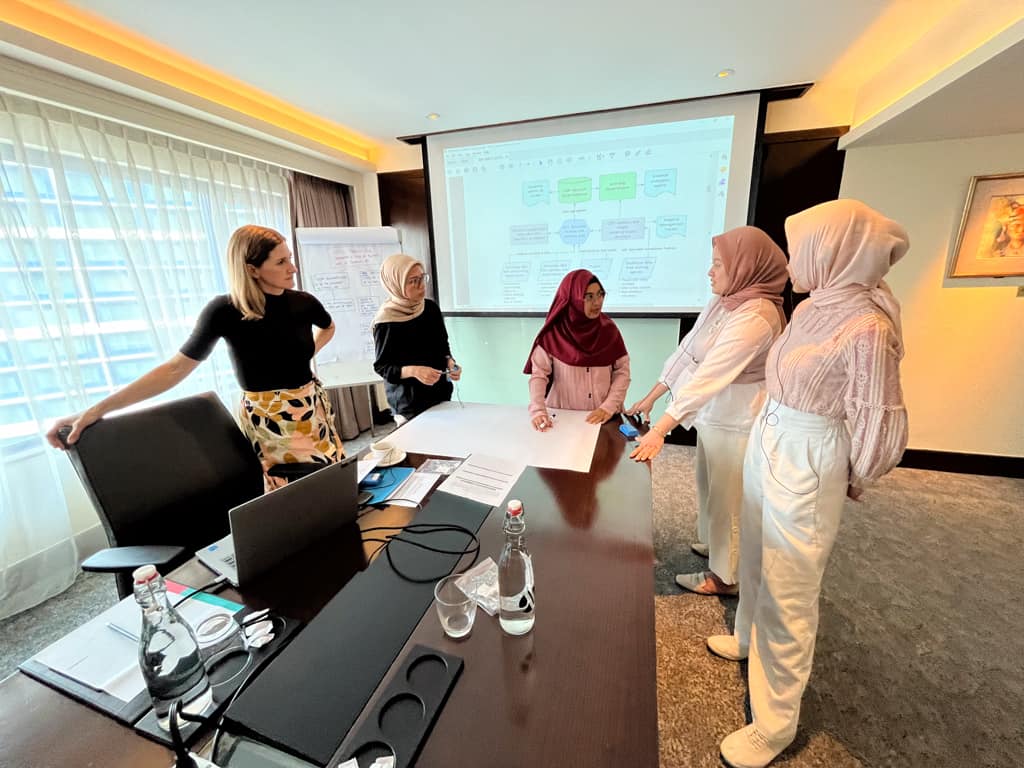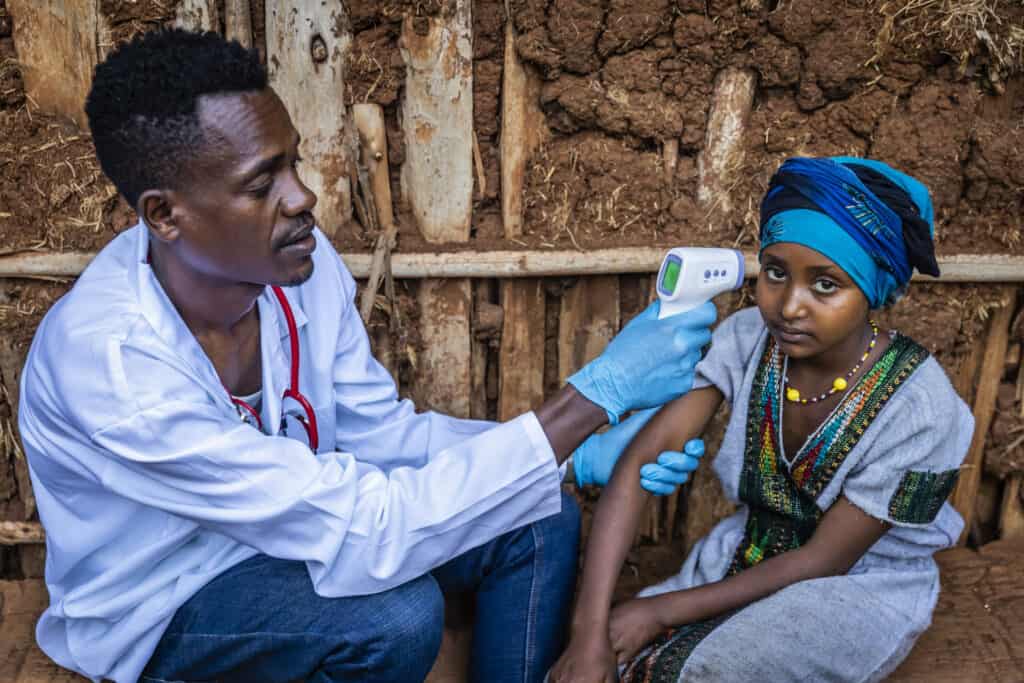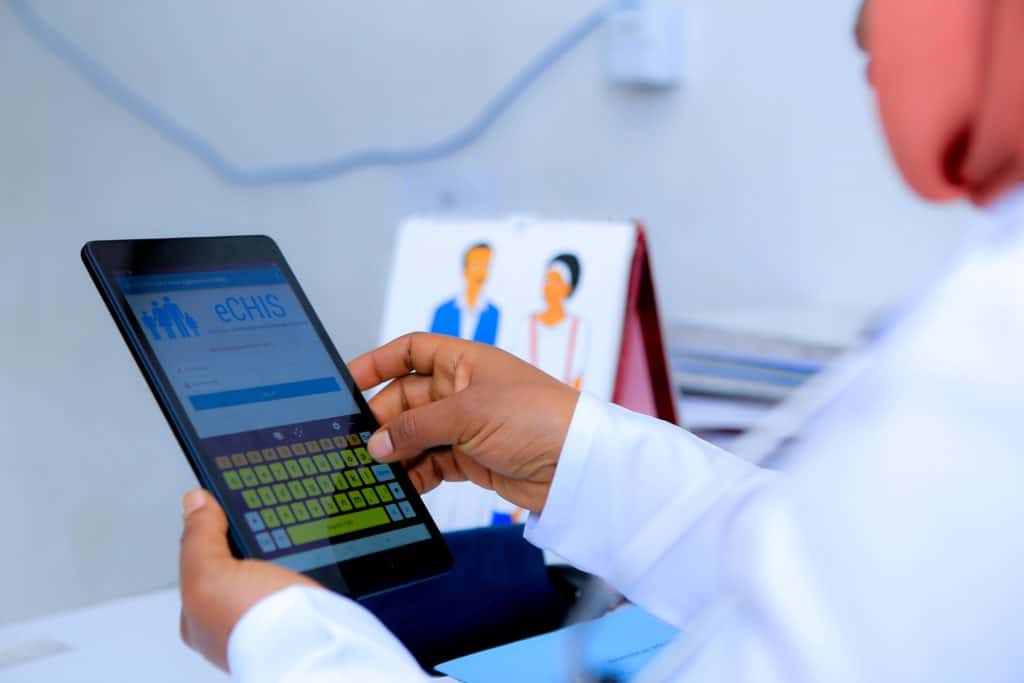This website uses cookies so that we can provide you with the best user experience possible. Cookie information is stored in your browser and performs functions such as recognizing you when you return to our website and helping our team to understand which sections of the website you find most interesting and useful.
Digital Health and Data Use
Digital solutions catalyze and expand social and behavior change (SBC) by making information more accessible, streamlining processes, fostering social cohesion, and widening reach. Similarly, data-backed behavioral insights are essential to understanding factors that influence people and implementing interventions that enhance user engagement, promote individual and organizational behavior change, and ultimately improve health and development outcomes.
At JSI, we tailor digital health and data use programming to people’s motivations, preferences, and needs, and use digital technology to give real-time feedback that rewards progress and sparks action. Our work includes creating a skills-building platform to boost girls’ confidence when responding to harmful gender norms; using virtual games to improve health worker knowledge and practices related to sexual and reproductive health; and developing AI-powered dashboards for governments to track and respond to the malaria epidemic.
In collaboration with our Center for Health Information, Monitoring, and Evaluation (CHIME) and the Center for Digital Health, our SBC experts apply human-centered design and behavioral science to engage with stakeholders to design interventions; use monitoring and evaluation to understand users’ perspectives; and ensure buy-in, uptake, and follow-through on digital health and data use solutions.
For more information, contact Melinda McKay, Behavior Initiative Director at Melinda_McKay@jsi.com.
Project in Focus
USAID Country Health Information Systems and Data Use
Through the USAID Country Health Information Systems and Data Use (CHISU) project, we are increasing demand for and use of health data and information by understanding and addressing individual and organizational behavioral barriers and facilitators to routine data use. In Ghana, we used behavioral analysis to inform a coaching program for facility-level health staff on data capture practices; encourage regular data monitoring; and explore ways to improve malaria reporting practices. We also worked with the private sector to ensure its data reporting practices conform with national health information management system standards.





